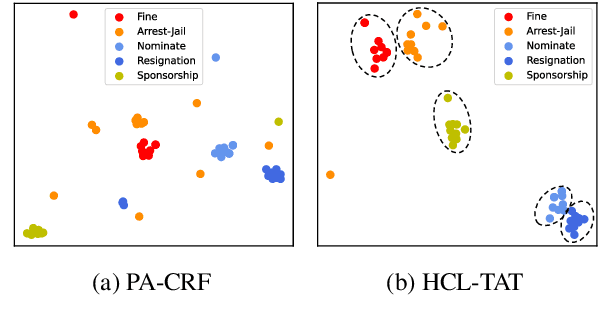HCL-TAT: A Hybrid Contrastive Learning Method for Few-shot Event Detection with Task-Adaptive Threshold
Paper and Code
Oct 17, 2022



Conventional event detection models under supervised learning settings suffer from the inability of transfer to newly-emerged event types owing to lack of sufficient annotations. A commonly-adapted solution is to follow a identify-then-classify manner, which first identifies the triggers and then converts the classification task via a few-shot learning paradigm. However, these methods still fall far short of expectations due to: (i) insufficient learning of discriminative representations in low-resource scenarios, and (ii) trigger misidentification caused by the overlap of the learned representations of triggers and non-triggers. To address the problems, in this paper, we propose a novel Hybrid Contrastive Learning method with a Task-Adaptive Threshold (abbreviated as HCLTAT), which enables discriminative representation learning with a two-view contrastive loss (support-support and prototype-query), and devises a easily-adapted threshold to alleviate misidentification of triggers. Extensive experiments on the benchmark dataset FewEvent demonstrate the superiority of our method to achieve better results compared to the state-of-the-arts. All the code and data of this paper will be available for online public access.
 Add to Chrome
Add to Chrome Add to Firefox
Add to Firefox Add to Edge
Add to Edge